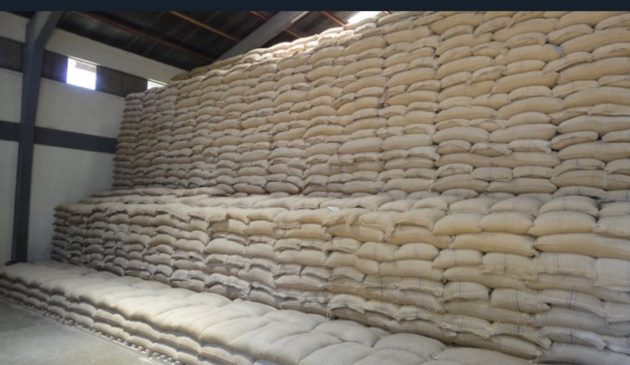For many years, farmers in Kenya have suffered the brunt of low commodity prices, poor access to credit, markets and quality farm inputs, thanks to an exploitative, inefficient and rigged agricultural value chain.
But that is slowly changing as the government carries out bold reforms in the agriculture sector to improve productivity across the value chain, and more importantly, weed out cartels and middlemen choking the sector by fleecing farmers.
Key among these reforms is the enactment of the Warehouse Receipt System Act of 2019, which provides a legal framework for the development of a vibrant and stable agricultural commodities market in Kenya.
Although warehouse receipting is not new in Kenya, there has not been any formal legal and institutional arrangement to support its development. The Act, therefore, fills a major lacuna and facilitates the creation of a stable and reliable agricultural commodities market.
Specifically, it seeks to address marketing challenges associated with the grain sub-sector. The purpose of the Warehouse Receipt System (WRS) as established in the Act is to formalize the grain trade in Kenya; improve access to credit by farmers; promote good post-harvest practices and ensure proper storage of grains.
The Act also establishes the Warehouse Receipt System Council, tasked with among other things, overseeing the functioning of the WRS; maintaining a central registry for warehouse receipts; and promoting the development of a national network of privately or publicly managed licensed warehouses that can issue warehouse receipts.
The warehouse receipt system essentially works like this. A farmer delivers produce, for example, maize or wheat, to a warehouse that is licensed by the government to generate electronic warehouse receipts. The farmer gets a warehouse receipt which is basically a title document showing the type, amount and quality of produce delivered to the warehouse.
The receipt acts as evidence that the farmer is entitled to payment for known volume of agricultural produce and the terms of such payment. The receipt is like a motor vehicle logbook or land title deed and therefore can be used as collateral to access credit from financial institutions.
With the legal and institutional framework for WRS now in place, farmers in Kenya – and especially small-scale farmers – stand to reap many benefits.
First, the warehouse receipt system enhances access to credit by farmers, a crucial factor in transforming agriculture from a subsistence, low-value activity to an innovative, commercially viable and competitive affair, as envisioned in the Agricultural Sector Transformation and Growth Strategy (ASTGS) 2019-2029.
We cannot achieve food security as a country without a vibrant, commercial and modern agriculture sector that creates jobs, enhances value addition and contributes to sustainable economic growth. Currently, bank lending to agribusiness is a paltry five percent on account of Agriculture being viewed as a risky venture.
Access to credit also helps improve productivity as farmers don’t have to wait to sell the produce so as to purchase farm inputs like seeds, fertilizer and pesticides. They can borrow using the warehouse receipts in time for the next planting season thus enhancing output and productivity.
Second, WRS enhances the market power of small-scale farmers as they are able to choose when to sell their produce, thus protecting them from exploitation by middlemen. The pressure to sell immediately after harvest, for instance, due to lack of storage facilities, often leads to losses as farmers are forced to sell produce at low prices. Instead, they can hold on to their warehouse receipts and sell when prices are favorable.
Third, the warehouse receipt system gives farmers access to good storage thus minimizing post-harvest losses. Our farmers incur heavy post-harvest losses as a result of lack of proper storage facilities.
The government should also address risks that are likely to hamper the successful implementation of WRS. It must see to it that only certified warehouses are allowed to receive and process farmers’ produce and that cartels do not infiltrate the system or create shadowy, parallel warehouses engaging in illegal receipting.
Also, the relevant agencies must ensure licensed warehouse operators strictly comply with storage and preservation standards to ensure the integrity of the produce in their custody at all times.
Moreover, we need to avoid the mistakes of countries like Zambia and Brazil where although the warehouse receipt system in those countries was off to a good start, it soon became mired in inefficiencies linked to corruption, fraud, mistrust and mismanagement.
The ministry of agriculture should also put in place regulations specifying the crops or produce covered under the WRS as required by the Act. While unveiling the WRS Council, Agriculture CS Peter Munya directed the council to prioritize tea, coffee, rice, beans, green grams, maize and wheat. This list needs to be urgently anchored in regulations so as to provide the certainty required for the WRS to thrive in Kenya.
Mr. Murumba is the Managing Director, Impulso Kenya Limited (peterwafula@impulsokenyaltd.com)


























































